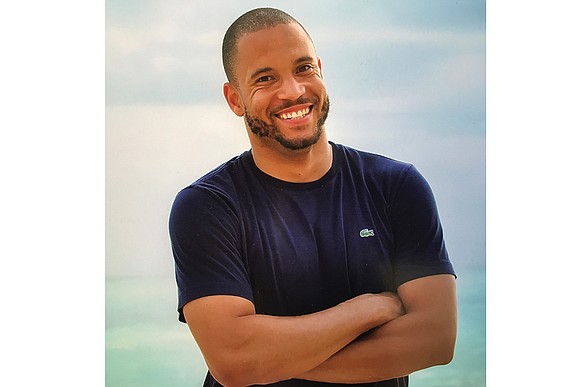Meals tax increase is ‘a critical start’
2/9/2018, 10:07 p.m.
Dr. Ravl K. Perry
I am a single man with no children. I strongly support Mayor Levar M. Stoney’s proposal to add a cent and a half increase to Richmond’s meals tax to fund the construction of new schools for our city’s children.
In fact, I don’t think the proposal is enough. The meals tax is not a one-stop fixer. This is one step in a long journey. The proposal is a critical start to improving the quality of life of African-Americans. Richmond’s black residents must rally to ensure its success.
Make no mistake: The mayor’s proposal to invest in the construction of new school buildings is about black communities. If enacted, his proposal will make a serious down payment on ending some of the most negative effects mostly black residents face in the city. His proposal gives us a chance to end this cycle of opportunity segregation that is most evident in the makeup of our public schools.
I choose to champion it because of the targeted benefit the effects will have on the students. With nearly 25,000 students, Richmond Public Schools is 75 percent African-American. Given the current school population, his proposal is one that greatly impacts black residents and communities in the city.
I also hope the resulting school construction projects will include a significant number of minority-owned contractors. Large construction projects such as these provide a great opportunity to build the capacity of minority-owned firms and businesses to compete with larger firms for bigger projects. They also have the potential to substantively benefit the families, clients and neighborhoods of black contractors.
The mayor’s proposal is highly likely to be successful if passed. This is because the tax as proposed is limited and appropriately targeted. The mayor’s proposal only taxes those who choose to eat out, usually, people with discretionary income. But, it can easily fail without strong support from the black community.
The state of Virginia provides no grants to counties and cities for their public school capital projects. The state’s longstanding anti-tax culture in suburban and rural communities — a holdover from colonial days — is alive and well in the Trump era. Many area conservatives yell the expected refrain, “No, try something else. Wait.” As Dr. Martin Luther King, Jr. reminds, “Wait almost always means never.”
These headwinds, plus mixed support on City Council, is not a guarantee of success.
Mayor Stoney is taking a serious political risk by announcing this bold initiative. But risk-taking mayors tend to be most successful in producing substantive results for black communities.
Mayor Stoney may be such a mayor, and if so, we will continue to benefit. The effort to invest in Richmond Public Schools is trickle up economics — and it works.
As the CEO of the Richmond Association of REALTORS recently and aptly noted about Richmond’s school buildings, “Some have black mold. (Walk into others and) you might gag at the smell of backed-up sewage, or dodge falling ceiling tiles … The average age of Richmond’s schools is 63 years; eight of the buildings are over 100 years old.”
Unless the meals tax increases passes, needed school improvements like these will be on hold until 2023. That’s unacceptable. We must have the right teaching environment to induce the best learning prospects and the best outcomes for the city.
But new buildings with old problems is not the answer. Even if the mayor’s proposal is enacted, the schools still need new books. We need to ensure students are taught ethnic studies and history, along with the STEM fields. We need to expand music, arts and after-school programming.
Mayor Stoney’s proposal won’t fix those deficiencies, but his proposal is the jump-start Richmond needs and the students deserve. His proposal benefits everyone because we all win when all neighborhoods have great public schools.
This Black History Month. Let us all make black history. Let’s enthusiastically support Mayor Stoney’s meals tax proposal. In doing so, we support each other. And that’s something we can celebrate together.
The writer is chair and associate professor of political science at Virginia Commonwealth University. He also is immediate past president of the National Association for Ethnic Studies.







